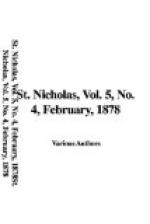Every man was at once enlisted in the service of fishing for the treasure. The bullion was discovered first; after that, in the bottom of the hold, the sea-miners found the coin in bags, which had been so long under water that they were encrusted with a stony shell, hard as rock. This was broken with crowbars, revealing gold, jewels, and “pieces of eight,” in glittering abundance. The last day’s work brought to light twenty massive silver ingots, and the whole amount recovered was somewhat over three hundred thousand pounds, a sum equal in the values of our time to five millions of dollars. Nor was this all the riches concealed in the wreck; but Phips was obliged to return to England before completing the business. Provisions had run low, and the presence of so vast a treasure on board had stimulated the cupidity of the crew to a dangerous degree, so that each day of delay in reaching port was full of hazard. Every precaution was taken to guard the treasure, but what probably prevented the crew from rising was the promise Phips gave them, when matters had become most suspicious, that they should each receive a share of the profits in addition to his wages, even if his own portion were thus swallowed up. Phips reached England without mishap, thus bringing to a successful termination one of the most daring exploits of its sort that were ever attempted.
When the profits were divided, Phips received as his share a sum that would now be equal to two hundred and fifty thousand dollars. The Duke of Albemarle presented Mrs. Phips with a magnificent gold cup worth fifteen thousand dollars, and King James expressed great pleasure at the honesty and ability of Phips in the conduct of such a difficult undertaking, and as a reward for bringing such a treasure into England granted him the honor of knighthood, and offered him important employment in the royal service. Fortune had indeed smiled on the shepherd-boy of Maine.
But Phips was never ashamed of his humble origin, nor in all his wanderings did he forget his native land. And now, instead of remaining to enjoy further honors near the throne, he returned to his family, bearing the important commission of High Sheriff of New England. He now built the brick house on Green Lane which he had promised his wife fifteen years before. The name of this Street was eventually changed to Charter Street, in memory of his efforts to have the charter of the Massachusetts colony restored.
Sir William Phips afterward engaged in the wars between the American colonies of France and England, and at the head of an expedition of eight ships captured Port Royal. A subsequent enterprise against Quebec failed from a combination of causes, some of them beyond the control of Phips. After this Sir William went again to England, where he was appointed Captain-General and Governor-in-Chief of the New England colonies; and his return home with these new honors and titles was made the occasion of a day of solemn thanksgiving.




